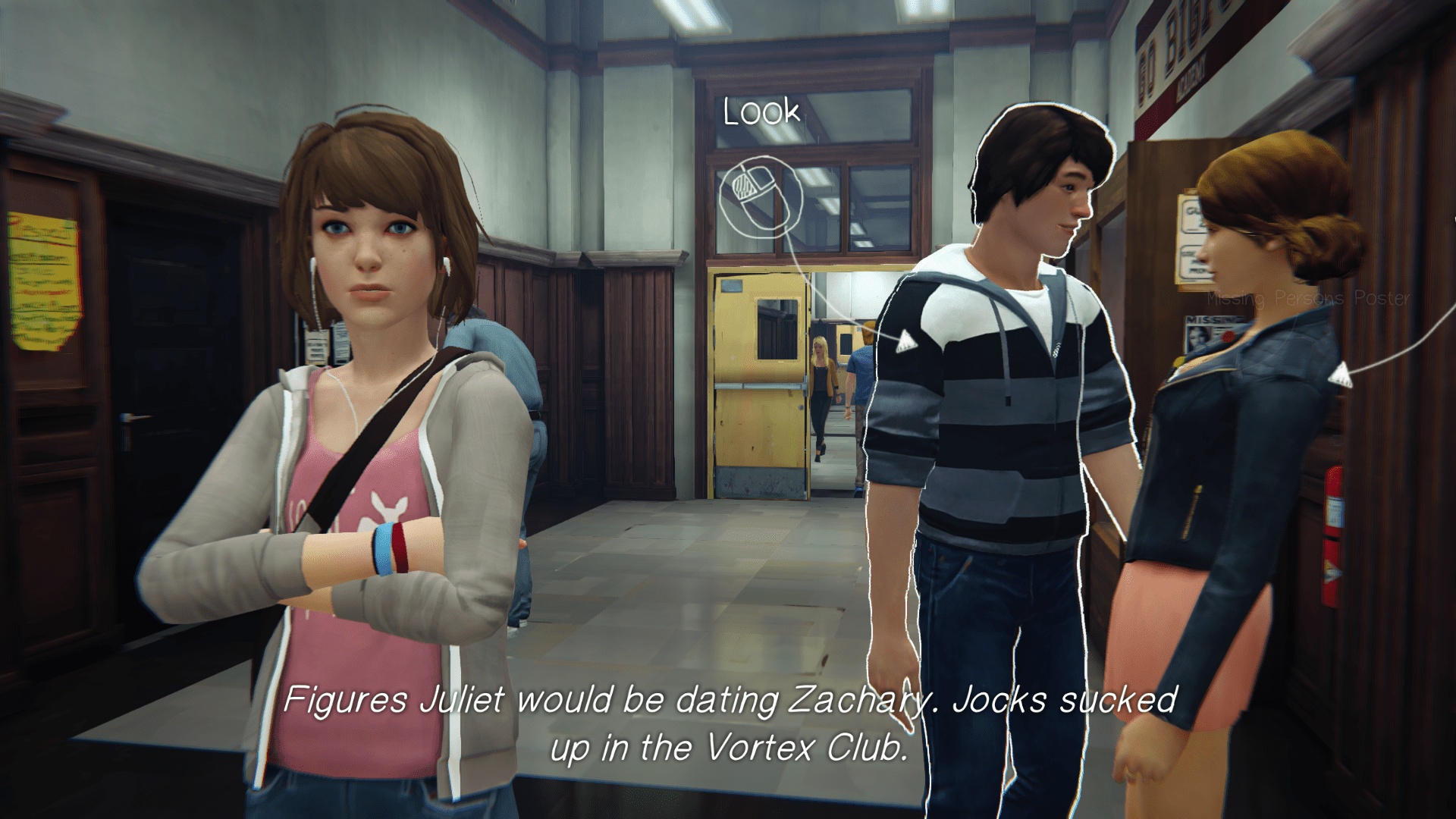
I played the game Life is Strange by Dontnod Entertainment through the Steam platform. The game targets players who enjoy narrative-driven adventure games, especially those interested in mystery and complex, relationship-focused storylines. Elements of the game include an emphasis on character development, branching narrative, decision-making, time manipulation mechanics, and environmental interaction. Life is Strange aims to provide a blend of immersive narrative exploration and puzzle solving. From my 20 hour playthrough, I can say that the game meets all its goals, offering a compelling mystery that is engagingly intertwined with the gameplay mechanics.

At the core of the narrative is a mystery that unravels through the game’s episodic arc. The game is distinctly split into five episodes, each contributing to a broader narrative arc that progressively reveals the underlying mystery. The narrative is shaped by player choices, making each playthrough unique and personal. The primary mechanic, time manipulation, is central to the mystery’s unfolding. As the protagonist, Max, the player can rewind time to change their decisions, creating different outcomes and narrative paths. This mechanic forms a loop within the game, wherein actions and their consequences can be revisited and altered, creating a dynamic narrative. The looping nature of this mechanic creates a sense of mystery and suspense, as the player is continually questioning their choices and their potential impacts. Hence, the time manipulation mechanic does not only serve as a gameplay tool but it is also integral to the narrative by creating dramatic tension and adding complexity to decision-making. Furthermore, the setting of the game, the fictional town of Arcadia Bay, is intricately designed to guide the story’s progression. The environment is filled with clues and interactive elements that encourage exploration and discovery. These elements are woven into the narrative, revealing pieces of the mystery while also adding depth to the characters and their relationships.
However, one potential area of improvement could be later episodes, where the player’s previous choices seem to have less impact on the outcome than expected. This somewhat undermines the emphasis on choice and consequence that the game establishes, creating a disconnect in the narrative arc.



